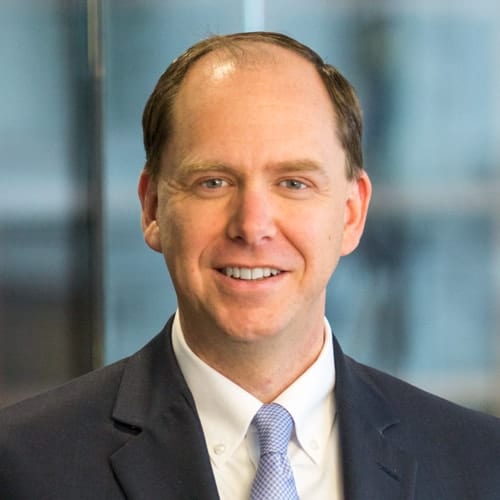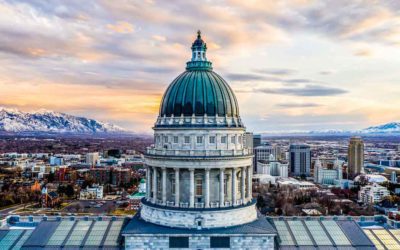This is part 7 in an ongoing series on advancing religious freedom for all by mitigating conflict between the free exercise of faith and other interests. Part 6 described Utah’s experience with enacting legislation that avoids polarization between discrimination law and religious freedom. This installment describes an approach to applying some of the lessons from Utah at the federal level.
Federal legislation that focuses only on religious freedom or only on anti-discrimination seems to be stalled (at least for now). In the absence of legislative efforts to reconcile these priorities, intermittent lawsuits for specific conflicts will continue to arise, some heartening one “side” and others bolstering the position of the other.
Do we need a federal law?
What can Congress do? If Utah has established a positive pattern, can’t other states just adopt the principles to create their own nonpolarized solution? Why another federal law?
Other states can, and probably should, carefully draw lines to ensure that religious freedom is protected at the same time nondiscrimination laws protect the vulnerable, but in many cases that has not happened. The states that have added sexual orientation and gender identity to their discrimination laws have not come close to ensuring the kinds of protections Utah has.
Already there is a federal nondiscrimination law plus the recent Supreme Court decision, Bostock v. Clayton County, which has significantly impacted the application of that law to the question of religious freedom.
That decision interpreted the 1964 Civil Rights Act, which prohibited discrimination in employment on the basis of race and sex. The court majority said the reference to sex in the law includes the categories of sexual orientation and gender identity. This has the effect, in the context of employment at least, of adopting the main provision of the Equality Act. Ongoing lawsuits seek to extend the reach of that ruling to other areas of the law where sex discrimination is prohibited.
The federal civil rights statute does include a modest religious exemption, primarily for churches, which was adequate for the types of conflicts that arose prior to the Bostock decision. Few, if any, religious organizations wanted to treat people differently because of race or sex, but that is not necessarily the same with sexual orientation and gender identity. Churches teach tolerance of all people, but they, and other groups motivated by faith, may be impelled by their beliefs to make distinctions based on sexuality.
So, in hiring decisions, use of facilities, employment benefits and other areas, religious organizations are faced with new challenges as their beliefs about sexual morality might lead to decisions at odds with federal nondiscrimination laws.
The Utah legislation avoided most of these controversies. But since the decision to adopt new categories for federal nondiscrimination law was made by the court and not Congress, this was done without adopting balancing religious protections.
Fairness for All approach
This is the backdrop for current debates about discrimination and religious freedom in federal law. The Supreme Court’s interpretation of the U.S. Constitution and the Religious Freedom Restoration Act provides some protections (for religious schools, for instance), but many potential conflicts are not addressed.
So, Congress needs to act to ensure that discrimination laws apply as intended, to protect people in need without threatening the work of religious groups and people of faith.
In 2019, Rep. Chris Stewart proposed a bill, the Fairness for All Act, modeled after the Utah legislation preventing discrimination while preserving religious freedom. That law has not yet been voted on, but some of its features provide an excellent starting point for discussions on how to protect all interests at the federal level.
In addition to ensuring protection for LGBT people in employment, housing and public accommodations and providing exemptions for churches, the act includes some helpful additional protections for religious freedom:
- It clarifies that religious groups can participate in federal programs (such as for infrastructure assistance or in scholarships to students choosing religious schools) regardless of their beliefs, teachings or standards or whether they have religious symbols on their property.
- It requires employers to make a significant effort to accommodate an employee’s religious practice, including allowing leave policy to be used for religious reasons (to celebrate religious holidays, for instance).
- It ensures both religious and nonreligious employees will not be fired for engaging in protected speech outside the workplace.
- It allows churches to set guidelines for how those who use their facilities must act to ensure the sacredness of those buildings.
- It prohibits the government from punishing religious institutions (such as by denying accreditation to religious schools, refusing to give professional licenses to people of faith, or creating religious tests for public office) because of their beliefs.
- It prohibits denying nonprofit status to religiously motivated nonprofits because of their beliefs.
Including these types of provisions in federal legislation would go a long way toward ensuring a balanced approach to protecting religious freedom and the principle of nondiscrimination.
If the debate over these issues continues to be polarized, dominated by zero sum competition and sporadic courtroom battles, it will ensure that the rancor surrounding Supreme Court nominations will continue. Justices will be making the final decisions on the most divisive issues, risking sometimes-wild shifts in enforcement of religious protections from administration to administration. In short, it will guarantee continued uncertainty and division.
More Insights
Read More
Is California’s minimum wage hike a mistake?
Is raising the minimum wage a good tool to help low-income workers achieve upward mobility? That’s the key question at the heart of the debate over California’s new $20 an hour minimum wage law for fast food workers.
Why is Utah at odds with Justice Department over treatment of gender-dysphoric prisoner?
Lawsuit illustrates a little-known practice of federal agencies – giving various forms of “guidance” which are not supposed to be legally binding. The practice raises serious legal and constitutional questions.
What would a parent-teacher ‘handshake’ look like in Utah?
This partnership does not allow either party to pass blame entirely to the other. There is no scapegoat, only opportunities for either party or both to work on the factors within their scope.



